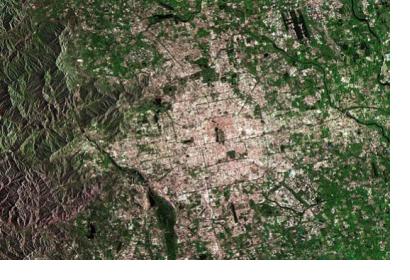The United Nations Office for Outer Space Affairs (UNOOSA) and the Ministry of Emergency Management of the People’s Republic of China (MEM) will hold this year’s International Conference on Space-based Technologies for Disaster Risk Reduction from 24 to 26 October 2018 in Beijing, China. The conference, entitled “Enhancing Disaster Preparedness for Effective Emergency Response”, is implemented under the United Nations Platform for Space-based Information for Disaster Management and Emergency Response (UN-SPIDER) through its Beijing Office.
The event follows seven previous conferences held since 2011, which have offered a forum for disaster management communities and experts to strengthen their capabilities in using space-based information to identify, assess, monitor and respond to disaster risks and integrate space technology into long-term disaster risk management efforts.
In collaboration with the China National Space Administration, the Asia Pacific Space Cooperation Organisation and the Regional Centre for Space Science and Technology Education for Asia and the Pacific, the conference targets disaster managers, policymakers, providers of space technology solutions/tools/applications from governments, academia, research, NGOs and the corporate sector to further strengthen disaster preparedness for response, take action in anticipation of events, integrate disaster risk reduction in response preparedness and ensure that capacities are in place for effective response and recovery at all levels.
Earth observation and other space technologies play an important role in emergency response by providing rapid response maps, detailed damage assessment, emergency communication, and collecting location-based damage information.
The conference supports UN Member States in preparing and building capacities for utilizing the full potential of space technologies in support of Sendai Framework Priority 4. The Sendai Framework is a 15-year, voluntary, non-binding agreement which recognizes that the State has the primary role to reduce disaster risk but that responsibility should be shared with other stakeholders including local government, the private sector and other stakeholders. Priority 4 is an action plan which focuses on enhancing disaster preparedness for effective response and to “Build Back Better” in recovery, rehabilitation and reconstruction.
Though the implementation of the International Conference on Space-based Technologies for Disaster Risk Reduction, UN-SPIDER aims to provide a platform to communicate various means to be adopted by the Member States and to support international and regional organizations in enhancing disaster preparedness for effective responses in regards to recovery, rehabilitation, and reconstruction. This includes space-based technology and tools as well as peripheral issues such as data sharing, spatial data infrastructure, and institutional coordination. Recommended practices and experiences in this context will be shared by the panelists and discussed by all participants.
Thus, the conference’s overall aim is to strengthen the role of space technologies to assist the Member States in implementing the Sendai Framework, the 2030 Agenda for Sustainable Development and the Paris Agreement stemming from the 21st Conference of the Parties to the United Nations Framework Convention on Climate Change Conference of the Parties (COP21). This can be achieved by a deeper engagement with the Member States through technical advisory support and institutional strengthening.
The deadline for registration for participants seeking funding is 8 August 2018. Self-funded participants have until 31 August to register. Online registration is mandatory for all participants via the UNOOSA online registration platform.

